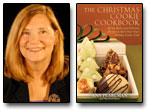I was in the early years of high school when my grandfather gave me MARCH OF ARCHAEOLOGYby C.W. Ceram for Christmas. The book’s cover, the famous golden lid of the mummy of Tutankhamen, and the story inside of the discovery of his tomb galvanized me.
I don’t know why my grandfather gave me this book. Perhaps because I had been fascinated by the mummies in the basement cases of the Chicago Museum of Natural History. I had asked him questions about how the bodies had become so petrified. I had marveled at the skin, the hair, the wrappings turned to sandy webs of a person who had lived 4,000 years ago and could never have imagined ending up in a museum where a little girl stared into his face and wondered about his life. In any case, I devoured the chapters on the discovery of the tomb, the Rosetta Stone and culture of ancient Egypt, and then scoured the Carnegie Library for books about the creation of mummies, the religion that believed that the body returned life. There, too, I discovered a dusty book teaching hieroglyphics, and laboriously labored to translate the BOOK OF THE DEAD.
Unbelievably, with more chutzpah than I think I could muster now, I walked into the office of the director of the Carnegie Museum, my handwritten translation clutched in the crook of my arm, and announced that I was an Egyptologist and wanted a job. Wise man that he was, the director showed me an archive stacked with Native American artifacts: baskets, blankets, moccasins, beaded bands, feathered headdresses and shrunken heads. He needed someone to re-label these items. Alas, the tags were rotting away, and history would be lost. I could save relics of the great people who lived and flourished before Columbus wiped them out with disease and war. For the next two years, because neat penmanship was never my forte, I carefully wrote numbers with India ink on linen labels and tied them to the special artifacts, wondering at the people who had woven the basket, gathered the feathers, and shrunk the head. I skipped a lot of high school to sneak into the huge, locked room and complete my task --- an act that I’m sure my grandfather would not have censured.
From that book, my love of archaeology expanded to anthropology and psychology. It presented me with a career as a therapist and a writer, as I continued my curiosity to understand people within their culture; to uncover, to unwrap the commonality between that man turned into a mummy leaning against a wall behind a glass case in Chicago, and me, writing this today in my modern hieroglyphics with my laptop while a plane carries me across the United States.
My grandfather would be so pleased at the impact of that book. And maybe amazed. He could have no idea of the ripples that present would cause, or the changes that would take place in his granddaughter’s lifetime.
Be sure to check back tomorrow, as Susan Henderson helps bring in the New Year with the story of her Little House obsession.
 A painter, sculptor and psychotherapist, Ann Pearlman is the author of THE CHRISTMAS COOKIE CLUB and its recently released companion, THE CHRISTMAS COOKIE COOKBOOK: All the Rules and Delicious Recipes to Start Your Own Holiday Cookie Club, as well as a riveting personal memoir. Below, she reflects on how a seemingly strange gift from her grandfather has helped her on her own remarkable march through life.
A painter, sculptor and psychotherapist, Ann Pearlman is the author of THE CHRISTMAS COOKIE CLUB and its recently released companion, THE CHRISTMAS COOKIE COOKBOOK: All the Rules and Delicious Recipes to Start Your Own Holiday Cookie Club, as well as a riveting personal memoir. Below, she reflects on how a seemingly strange gift from her grandfather has helped her on her own remarkable march through life. 

